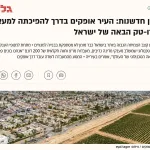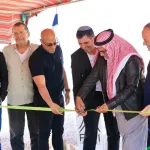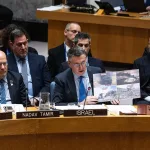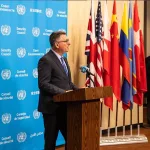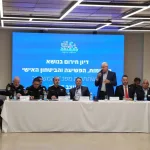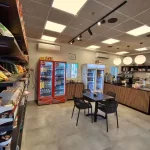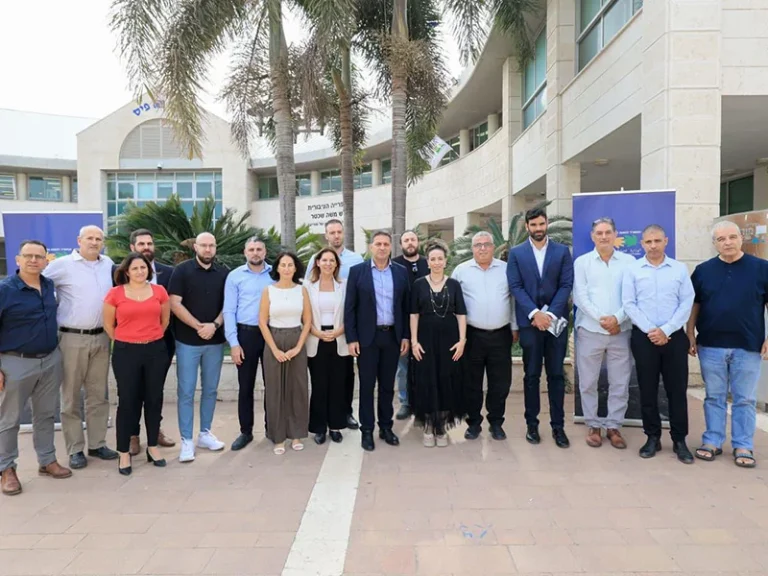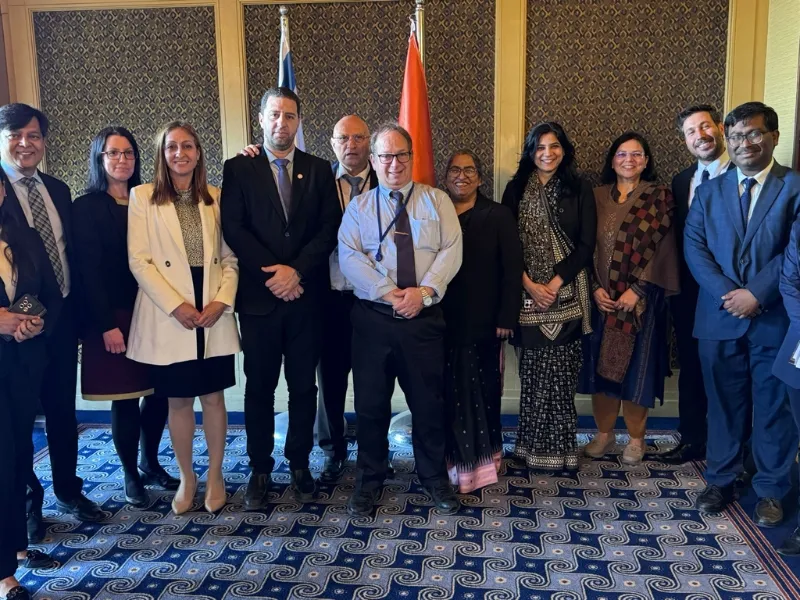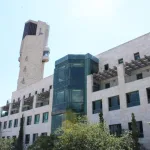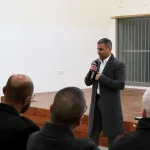In an emergency discussion held today, Tuesday (November 04), the ministry of Environmental Protection presented a national strategic plan, pursuant to Government Decision 592 (Hebrew), for preventing cross-border pollution and addressing environmental nuisances in the Judea and Samaria area – foremost among them the phenomenon of waste burning
The discussion was held in the presence of the Minister of Environmental Protection, Idit Silman; the Mayor of Modi’in-Maccabim-Re’ut and Chairman of the Federation of Local Authorities (or Union of Local Authorities), Haim Bibas; heads of local authorities in Judea and Samaria (J&S) and along the Seam Line; Director General of the Ministry of Environmental Protection, Rami Rosen; senior officials and professional staff from the Ministry; representatives of the Civil Administration; and representatives of other participating government ministries.
Against the background of the severity of the increasing waste burning nuisances in the Judea and Samaria (J&S) areas and their impact on public health and the environment in Israel, and even though all powers of supervision and regulation regarding waste in the Judea and Samaria areas lie solely with the Civil Administration – the Ministry formulated the strategic plan with the partners listed in Government Decision 592 (Hebrew).
The decision was initiated by Minister Silman, as part of a comprehensive and first-of-its-kind move, designed to provide a coordinated, budgeted, and multi-system response to one of the most severe air pollution hotspots in Israel, which affects the quality and health of the entire public in Israel.
Main Points of the Plan
New legislation
Advancing nine dedicated pieces of legislation (five through regional orders and four through local council bylaws) which will strengthen supervision and enforcement authorities and increase fines for environmental offenders.
Enforcement and Environmental Security
Expanding the enforcement system in Areas C and B in cooperation with the Police, IDF, and the security establishment in environmental protection missions, including establishing a permanent team (not from the Ministry of Environmental Protection) to accompany enforcement activities on the ground.
Unified Reporting Center
Establishing a 24/7 center to consolidate inquiries and reports on environmental nuisances in cooperation with the Fire and Rescue Services, the Civil Administration, and the Israel Police, alongside a new dedicated center within the Civil Administration.
Environmental Infrastructure
Establishing waste treatment infrastructure, including the Ramon site, which will comprise sorting, treatment, and landfill facilities, energy recovery facilities, transfer stations, and organic waste treatment sites.
Monitoring and Public Health
Expanding the air monitoring system also within the Judea and Samaria (J&S) areas, establishing three new monitoring stations, and continuous follow-up by the Ministry of Health on the health impacts of the nuisances.
International Cooperation
Formulating an action plan with the international community and donor countries for funding environmental projects among residents of J&S, to prevent cross-border nuisances.
Actions Already Underway on the Ground That Will Receive Immediate Additional Budgeting
The Ministry of Environmental Protection and the Civil Administration are already taking a series of steps to eradicate the phenomenon of waste burning, including:
- Operating the ‘David Unit’ for preventing waste smuggling from Israel into the Judea and Samaria (J&S) areas
- Funding and accompanying the rehabilitation of the Al-Minyah waste site
- Operating engineering tools for extinguishing internal combustion
- udgeting the transfer station in Abu Dis
- Upgrading impoundment yards
- Allocating dedicated standards (positions) for investigators, prosecutors, and field monitoring teams
Minister of Environmental Protection Idit Silman: “This is good news for the residents of the area and for the entire State of Israel – Judea and Samaria is not Israel’s environmental backyard, no more environmental terrorism and a reality of smoke, odor, and pollution from beyond the fence. We will act with determination: we will strengthen enforcement, establish modern infrastructure, and stop the fires. Public health and the environment will not be abandoned. This is the beginning of a different era, where the State takes responsibility and addresses the root of the problem – on the ground, in real-time, and for the benefit of all residents. I thank the heads of the local authorities, and especially the Chairman of the Federation of Local Authorities, Haim Bibas, for the partnership and commitment – together we will create real change”.
Mayor of Modi’in-Maccabim-Re’ut and Chairman of the Federation of Local Authorities, Haim Bibas: “This is environmental terrorism, no less. We demand that a single coordinating authority from the Ministry of Defense be appointed to operate with a structured, budgeted, and operative plan with timelines to eradicate the phenomenon. It is time for action; we are tired of talk. I thank the Minister of Environmental Protection for presenting the plan and for choosing to hold this important discussion on an issue that troubles over a million residents living in communities adjacent to the fence (Seam Line)”.
However, Bibas clarified that the Ministry of Environmental Protection cannot act alone, and that all responsible parties must work together on the issue. Bibas further noted that the affected local and regional authorities are preparing to submit a petition to the High Court of Justice (Bagatz).

